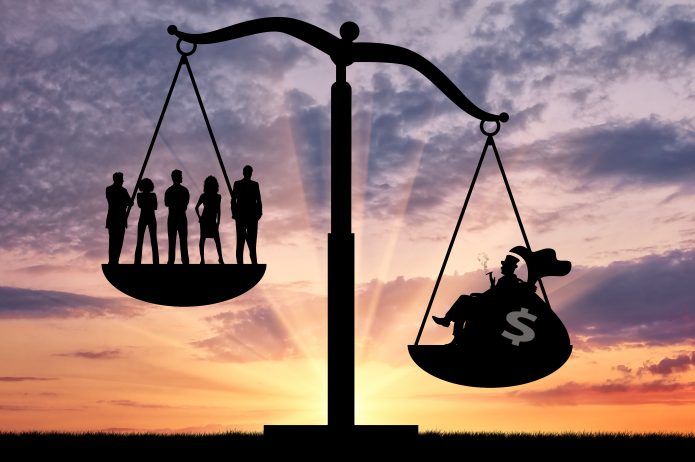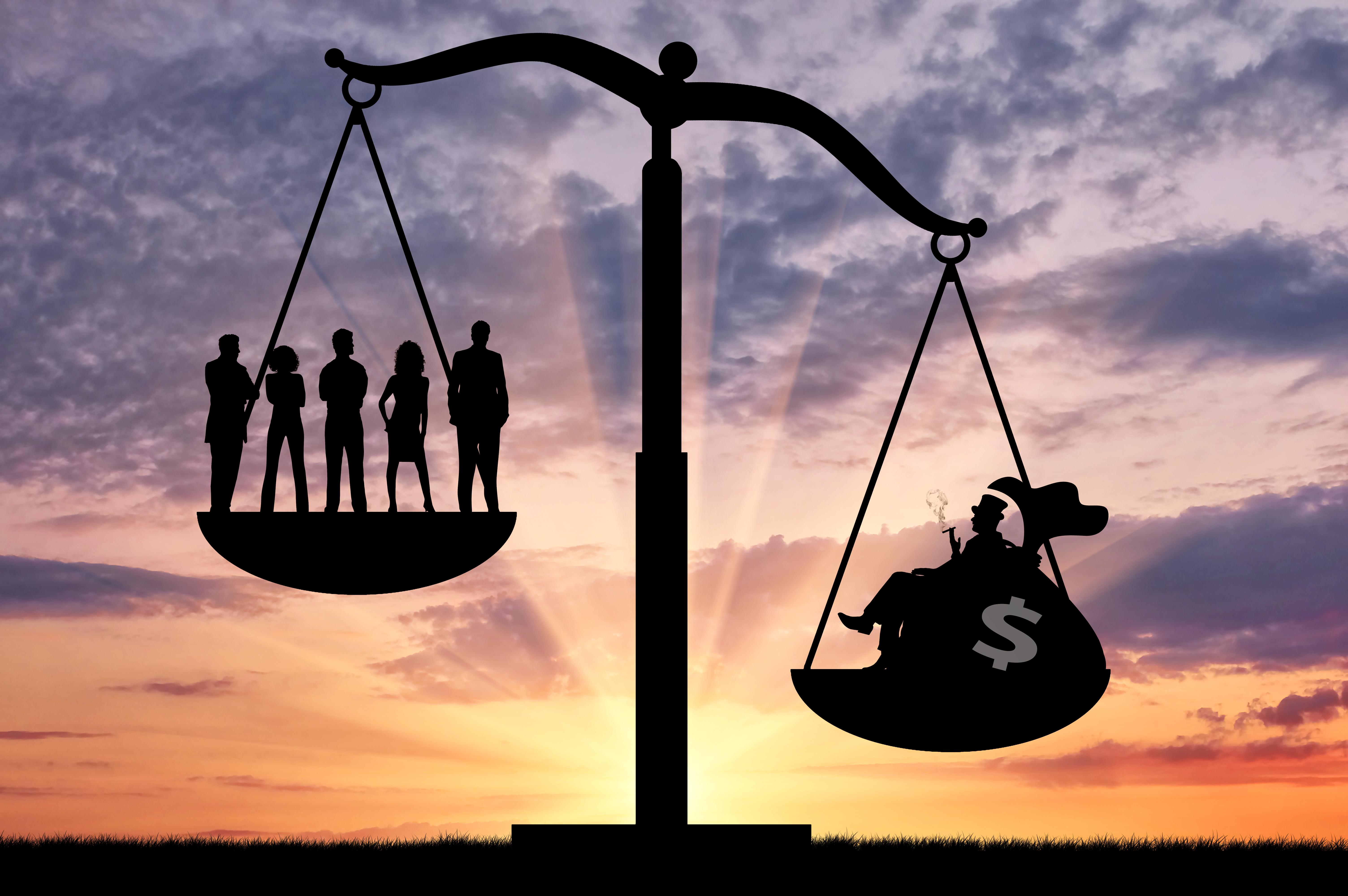
(Photo: Prazis/Shutterstock)
The rising inequality we’ve seen in recent decades did not happen by accident. It was the result of deliberate public policy decisions and, fortunately, can also be reversed by making different decisions.
That’s the contention of Dean Baker’s just-released book, Rigged: How Globalization and the Rules of the Modern Economy Were Structured to Make the Rich Richer. As the title suggests, Baker does a deep dive into the rigged rules that drive wealth to concentrate into fewer and fewer hands.
Longtime readers of Baker’s will appreciate his no-nonsense, straightforward style breaking down complex economic theories into bite sized bits. As co-director of the Center for Economic and Policy Research, Baker has built a career around breaking down the intricacies of public policy for the lay person.
As with much of his work, the book starts with an effort to correct a public narrative he sees as fundamentally flawed. Baker has turned countering misinformation into an art form in his popular Beat the Press blog. This time he is focused on the argument that Bernie Sanders is the enemy of the global poor because he opposes free trade agreements like the Trans-Pacific Partnership. The argument, in Baker’s sarcastic view, “made a nice contribution to preserving the status quo, but it was less valuable if you respect honesty in public debate.”
He goes on to argue the real enemy of the poor is not Sanders, but rather “the engineers of our current globalization policies.” Although he gives short shrift to the topic of how globalization is accelerating climate change, which has disproportionately harmful impacts on the poor, he persuasively argues that trade agreements designed to benefit elites are the real enemy of workers.
Baker points to the persistent high pay of the professional class as a particularly insidious example of the upside down priorities of public policy makers. Free trade agreements ship manufacturing jobs overseas and force workers to compete directly with low-wage workers around the globe. Doctors and other professionals, however, are protected from this competition, which may be why physicians in the United States make double the income of their contemporaries in other wealthy countries. Why do we import manufactured goods and not doctors? “The reason is simple: doctors and lawyers have more political power than autoworkers.”
The book distills the drivers of inequality into interrelated categories that each contribute to ensuring wealth flows upward. Macroeconomic policy and specifically the bipartisan obsession with low debt and deficits is of particular concern. To Baker, deficit hawks needlessly divert attention and resources from ensuring full employment and increasing output hurting workers at the bottom.
This misplaced mainstream meme was on full display in the final presidential debate in which moderator Chris Wallace fueled deficit hysteria goading the candidates into a dispute on how each would shrink the national debt and cut Social Security, or in Washington parlance “reform entitlements”. To Baker, the idea that shrinking the debt and deficit should be a pressing issue is simply wrong at a time when interest rates are so low and inequality so high.
A less discussed but no less impactful inequality driver Baker identifies is the expansion of patent protections and intellectual property agreements that guarantee pharmaceutical and medical device manufacturers are shielded from competition. As a result, we pay much higher prices for these items while the heads of these companies reap massive profits.
Readers of Inequality.org will recognize many of the solutions Baker points to like a financial transaction tax to cut down on rampant Wall Street speculation and regulation of executive compensation to stem skyrocketing CEO pay. These ideas are beginning to enter the mainstream with broad support and may soon see their day in the spotlight of serious policy discussions in Washington.
